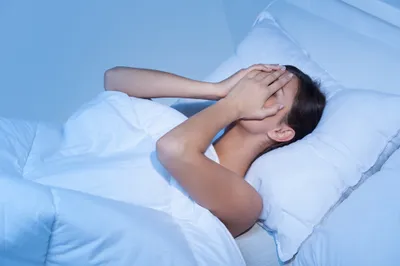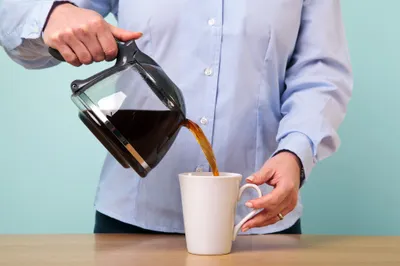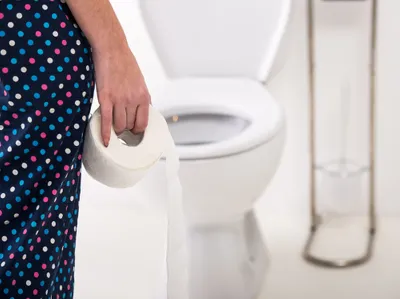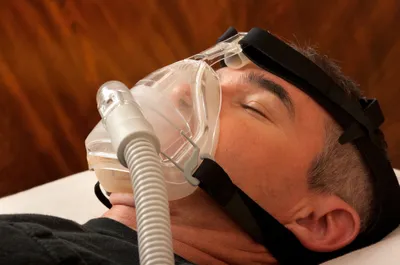Are you tired of waking up tired? You’re not alone. Sometimes it doesn’t even seem like you’ve slept after getting 7- or 8-hours of shuteye, and on top of that you end up lagging through the workday and daydreaming about your pillow.
There could be contributing health or diet factors that are making you feel this way first thing in the morning that you aren’t aware of, so making some adjustments in your routine could help you rise and shine instead of rise and whine for a change. Here are 7 ways to feel better in the morning whether you do them before sleep or right when you awaken…
1. Don’t go to Bed Stressed
Have you heard the term “don’t go to sleep angry?” It’s not just an old myth, there’s some science to back this one. Time magazine backs up this claim in a 2014 article that explains going to sleep while angry or stressed can “preserve” negative emotions that we gather during our waking hours.
Neuroscientists at the University of Massachusetts, Amherst confirmed that having a negative or traumatic experience before hitting the sack and trying to sleep it off is not a good idea, as you may experience sleeplessness because your brain is wired to avoid sleep following a negative event as a defense mechanism. Sleeping on it can bring the same unpleasant emotion back immediately after you wake up, whereas staying awake can reduce the feeling, noted the researchers.
2. Avoid Coffee Past Lunchtime
Drinking coffee is one of the great American pastimes, with some people drinking 10-cups or more throughout the day. Unfortunately, insomnia is also rampant in America thanks in part to this, and will lead to you feeling lousy and unrested in the morning.
The National Sleep Foundation in Virginia says that caffeine is the most popular drug in the world, and is found in more than just coffee—it’s also in your midnight chocolate run and your favorite sodas. It can block sleep-inducing chemicals during the day, but evening consumption can be bad because caffeine lingers for hours in your system, noted the clinic. It can also cause physical addiction and you can wake up craving it along with other symptoms, such as a headache or fatigue.
3. Empty your Bladder before Bed
You may not even be aware of that 3 a.m. bathroom run because you were so “out of it” from sleep, but it interrupted your sleep and took some time to fall back into a deep rest. Or, you may awaken and realize you need to go potty, but avoid it because you’re too groggy to get up. This is a good reason to tinkle before bed, even if the urge is not strong.
On a side note, Live Science noted in a 2012 article that some people (especially children and the elderly) feel the need to urinate during sleep because of a key protein that regulates the bladder at night. The protein—called connexin43—is controlled by your body’s circadian rhythm (internal sleep clock) and the higher the protein level, the less bladder control you’ll have.
4. Regulate your Bedroom’s Climate
The U.S. has weather extremes from hot to cold, and these temperature spikes definitely have an effect on your quality of sleep. However, you don’t have to crank the air conditioner on a warm night, as that will remove any humidity from the room and you might wake up with a dry nose and throat.
The Daily Mind suggested in a 2010 article suggests instead to crack open a window to let in fresh oxygen and let carbon dioxide filter out, as well as keep the room’s temperature more steady. The University of California San Francisco noted that oxygen levels in your body drop at night, due to slower breathing and reduced lung function. To determine your ability to absorb oxygen, your doctor may recommend a test that can lead to receiving supplementary oxygen, according to the university.
5. Put Sleep Apnea to Rest
Sleep apnea is a sleep disorder that affects many, and causes you to stop breathing for short or longer periods of time during rest. Excessive snoring can be a sign of it, but another sign is waking up feeling exhausted, according to the Mayo Clinic.
The clinic noted there are different forms of sleep apnea that your doctor should investigate if you suspect you have it. Other symptoms of sleep apnea include dry mouth, insomnia, attention deficit, and drowsiness during waking hours. Luckily, there are a number of treatments for sleep apnea including Continuous Positive Airway Pressure (CPAP) using a facial mask at night, oral appliances to keep your throat open, as well as surgery in more extreme cases.
6. Drink some Water after Waking
There are a few ways to quickly reverse the feelings of tiredness when waking up, such as sipping down a cool glass of water you should keep at your bedside. It will get things moving in your system as well as kick start your metabolism, which turns calories into energy.
Men’s Fitness magazine also explains that you wake up naturally dehydrated because you’ve gone hours without any liquid, and that you body naturally slows down to conserve its resources. Drinking a tall glass of water first thing in the morning and 64-ounces total throughout the day keeps you feeling more active and keeps your metabolic fires burning so you don’t crash during the day, added the magazine.
7. Have Something to Look Forward to
Waking up with negative thoughts about a medical appointment or an unpleasant task at work could put your body into flight response, and you can could end up pulling the covers over your head as soon as your awaken instead of tackling the morning routine.
Forbes Magazine said a way to combat this is to get excited about an upcoming event, even if it’s something as simple as enjoying a great coffee to looking forward to a weekend camping excursion. Getting up a bit early can help you fit in more pleasurable activity in the morning to help you relax—and experts say it helps to spring out of bed when the alarm goes off instead of hitting the snooze button several times out of habit.










